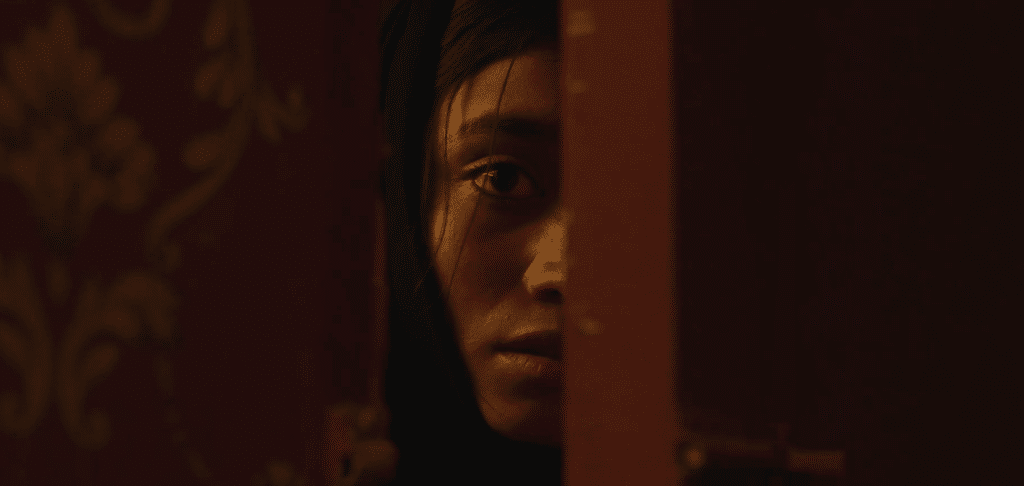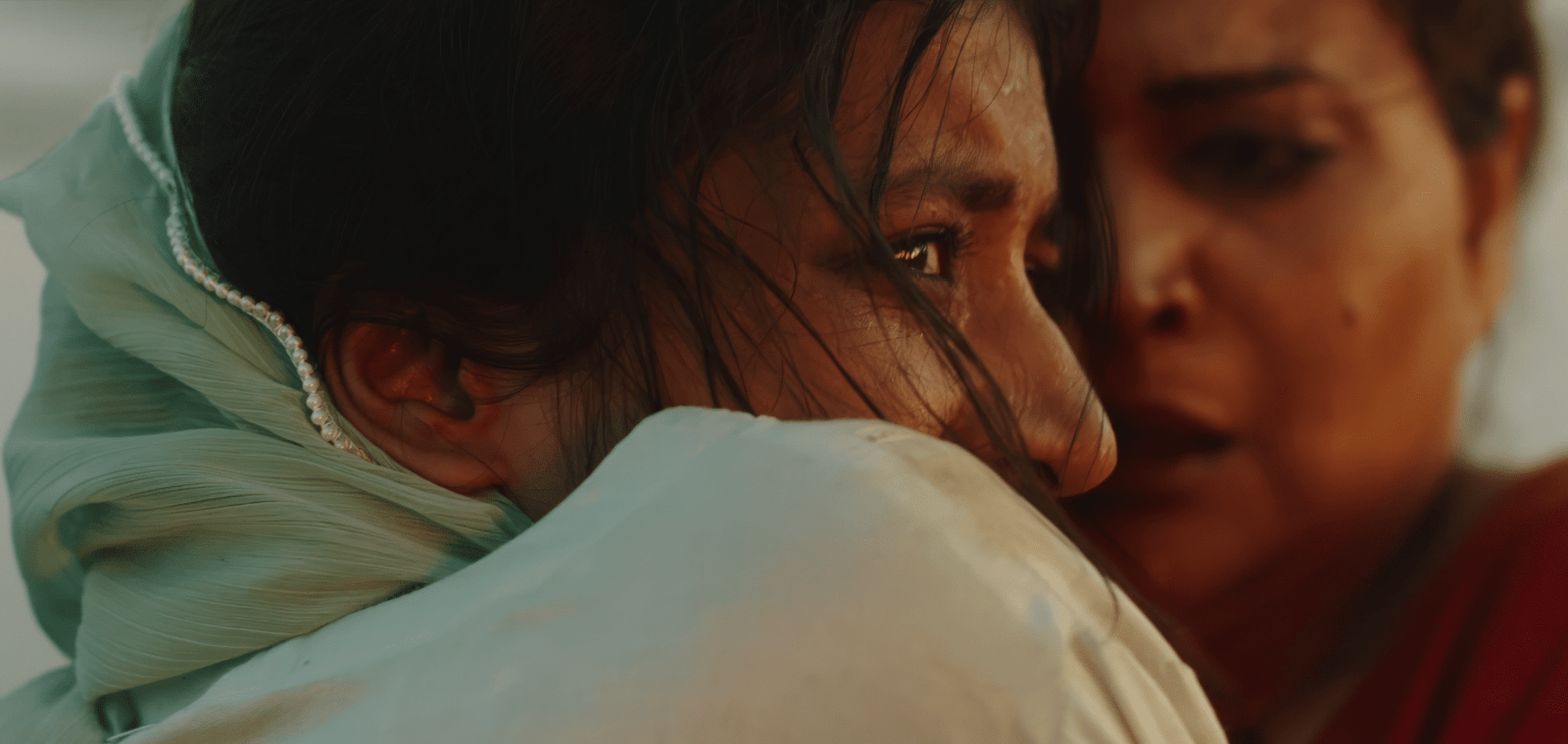
As the film begins, it seems that two different spheres – the domestic and the world outside the home – are being drawn into sharp relief here; navigating these two spheres, and the risks attendant on each, does indeed form a key part of In Flames. We are first faced with a young woman, who looks fearfully through – it’s not immediately clear where she is, but she looks alarmed, and a raised male voice is what is making her nervous. This is a family home in modern Pakistan, and by day, we see that the same household is dealing with the shock news of a recent death. The family’s patriarch has died unexpectedly; neighbours arrive to pay their respects, but the women do not attend the burial, scheduled for that day. It’s their job to prepare a special meal and to clean the house – there’s that domestic sphere again. They are less well-placed to deal with a sudden slew of financial concerns. Not knowing he was about to die, the patriarch has left debts. Uncle Nasir, arrived out of a blue sky to attend the funeral, offers to help them out: it’s the least he can do. At least funerals the world round seem to bring out the very worst in people; all he needs is a few signatures and their problems are over…
Mariam (Ramesha Nawal) is clearly, quietly troubled by it all. She attempts a spell of normality away from the house, taking her mother’s car to go and study and the nearby library, but as she waits to drive on, she is startled by an unknown man who smashes the car window and tries to take control of the vehicle. (To do what? We could hazard a guess. Festering, repressed sexuality haunts this film like a ghost throughout; you get the distinct sense that commandeering the vehicle is only step one of this new, opportunistic plan – and the man’s yells of ‘whore!’ as she gets away from him are another clue.) Mariam is shocked, but clearly no pushover: she continues to her destination, meeting up with her friend Rabiya as planned. Rabiya also has a friend with her: recently returned from Canada, Asad (Omar Javaid) has clearly brought a few more progressive values back with him, and he’s shocked by what Mariam has just gone through for simply driving down a residential street.
They soon begin to grow close, even though at first, Mariam seems honour-bound to question his motives. However, their connection is wholly innocent, loving and sweet – even if it means that this questioning eldest sibling of the household isn’t around when her mother Fariha (Bakhtawar Mazhar) finally acquiesces, providing Nasir with the paperwork he wants. It’s the perfect storm; no, scrub that. Mariam’s absence and Fariha’s trusting desperation create a sequence of storms, the navigation of which makes up the rest of this captivating, slow burn film.
It’s certainly not just the presence of brazen, grifting crooks exploiting an outdated and misogynistic legal system which grants In Flames its well-rounded sense of outrage. The whole film builds a picture of a heavily-surveilled, policed world – which impacts, in the main, upon women. ‘Good’ girls don’t walk the streets; they don’t sit inappropriately close to male acquaintances; they study indoors, privately, if they know what’s good for them. But nor are they safe at home: the whole film’s premise is how even that security can be taken away, whether by depraved men literally clambering into supposedly safe compounds, or by malingering male relatives. Open spaces are – with one notable, beautiful exception – dangerous, hostile places. Mariam’s disorientation when placed in these open spaces is palpable, not least through the cinematography itself, for example with the use of a rolling, careering camera going in and out of focus: the sense of panic passes to us, too. The whole film is perfectly engineered to engender queasy sensations of anxiety: the heat, the streets, the people. Long before any hints of supernatural story-building, the film is rife with sickly, brewing foreboding.
Rich visuals are refracted more and more through carefully-crafted fantasy elements which, as the film gets closer to its final scenes, are recognisably horror in origin. They are woven into dreams and flashbacks, but seem very real; their presence doesn’t detract from the film’s otherwise meticulous realism, however, nor from its cautious pace and superb characterisation. Ramesha Nawal as Mariam is fantastic, enigmatic but still clearly sensitive, a young woman of few words who nonetheless makes you believe in her completely. When she’s ferocious, you want her to succeed, but how quickly she has to put that fire aside – for propriety’s sake, or because she simply cannot match the bleak ferocity of the world she lives in. Likewise, when she’s adrift in that world, you want her to be safe. Such a precarious emotional investment, this. Her mother Fariha begins to blossom as a character, too. It happens under duress, dreadful duress, but regardless, even in her desperation she has a matchless, quiet reserve of energy. Together, they are quite something.
The film as a whole is quite something, even with a few unresolved questions hanging there in the dark by the end. Whether via its meticulous realism or the increasing use of supernatural content, In Flames illuminates, with clever detail, a greater kind of darkness. Challenging and complex, it is a tour de force meld of harsh reality and harsh fantasy; that this is director Zarrah Kahn’s first feature is just incredible.
In Flames (2023) will be in select cinemas from 24th May 2024.
